PYROCO2’s largely industry-driven consortium of 20 partners from 10 European countries with broad geographic spread, and Thailand. It involves seven large enterprises (ARKEMA, FIR, SCG, JM, PNO), five SMEs (SC, BPT, RANIDO, HIP, ECOIN), four academic partners (CTH, DTU, Univ. Lyon1/IRCELYON/CNRS, KIT), three RTOs (SINTEF, NORCE, NORNER), one Public-Private Cluster (AXELERA), and a regional authority partner (VTC). The project assembles leading entities in Europe, covering all relevant competences needed to achieve the ambitious goal of the project of demonstrating a new, sustainable, and economically viable route from industrial carbon emissions and renewable electricity to the key intermediate acetone and from there into a range of chemical, material, and synthetic fuel products usually produced from fossil feedstock.
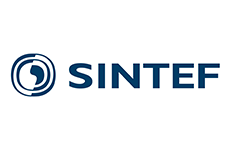
SINTEF AS
SINTEF is an independent non-profit research organization and with approximately 2000 employees one of the largest in Northern Europe. SINTEF performs contract research and development for a wide range of both Norwegian and European industry customers and participates as a research partner in a multitude of publicly funded research projects, both at the national and at the European level. For optimal performance in the latter, SINTEF has highly experienced dedicated staff for the administrative handling of EU projects like in Horizon 2020 and its predecessors.
Role in the project:
SINTEF will be responsible for overall coordination of the PYROCO2 project. In addition, SINTEF will work jointly with partner HIP in the feedstock provision and in particular in the full analytical characterization of the industrial gasses, will cooperate with DTU and SC in the optimization of the two-step fermentation and in increasing the robustness of the microbial strains, will demonstrate the production of fuels and material building blocks in a small-scale pilot unit, will collaborate with NORCE, HIP, and NEXTCHEM for the upscaled process integration. Finally, SINTEF will contribute to the dissemination and exploitation of PYROCO2 results and replication its technologies.

Again
Again is commercializing a platform for capturing and converting CO2 from industrial emission (CCU). The platform is based on bacteria growing at elevated temperatures. Again’s fundament are significant achievements from many years of (academic) research on non-conventional bacterial strains. The team of Again holds solid experience within project management, business development, bacterial strain development, and process design. The Again team has all competences required to fulfil the tasks related to work-package management, bio-process development, and upscaling of its proprietary bacterial process.
Role in the project:
Again will lead WP2 on the conversion of CO2 to acetone, including bioprocess development & optimization. The WP covers bacterial strain development, optimization of the bacterial consortium, process modelling, process engineering, and product purification.
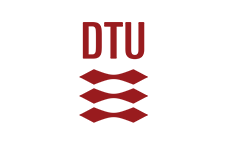
DANMARKS TEKNISKE UNIVERSITET
At the public Technical University of Denmark, the Center for Biosustainability (CfB) has been established with the main focus of lowering the development time of microorganisms to become attractive for the industry. The research is multi-disciplinary and focuses on developing cell factories for the production of chemicals and novel compounds. The researchers are internationally very well connected and the Center has more than 340 employees from 48 countries, hereof 10 full Professors. DTU Center for Biosustainability has 125.000 m2 State-of-the-Art laboratories in Lyngby, Denmark. Entrepreneurship, strong experience in Industrial collaboration and contribution to the foundation of more than 20 companies, several of which have commercialized products successfully.
Role in the project:
In PYROCO2, DTU will work on the strain optimization for large scale fermentation, gene expression stabilization of the production-organism and finally on the optimization of medium and conditions to minimize production cost and to streamline the integration of the two fermentation steps.
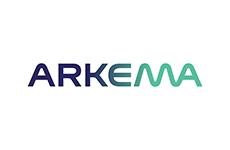
ARKEMA FRANCE SA
Arkema is a French leading chemical company, with about 8.8 G€ of sales from products in Specialty Chemicals (long chain polyamides, fluorinated polymers, additives, molecular sieves,…), Industrial chemicals (Thiochemicals, Fluorochemicals, Hydrogen Peroxide, PMMA) and Acrylics. Speciality chemicals and monomers produced by Arkema require high purities.
Role in the project:
Arkema will contribute in the project in providing guidance in the chemo-catalytic conversion of the produced platform chemicals.

CENTRE NATIONAL DE LA RECHERCHE SCIENTIFIQUE CNRS
The Institute for Research on Catalysis and Environment of Lyon (IRCELYON) is a joint research unit of CNRS and University of Lyon1. The French National Center for Scientific Research (CNRS) is an interdisciplinary public research organization under the administrative supervision of the French Ministry of Higher Education and Research. With about 33 000 people dedicated to research and 1 144 research laboratories in France and abroad, the CNRS is among the world's leading research institutions. The Claude Bernard Lyon 1 University is part of the University of Lyon, the most important French University site outside the Paris region. The Claude Bernard Lyon 1 University is a renowned educational and research institution, organized into 13 departments and 65 institutes and academic centers within an attractive environment. It provides teaching for 45 000 students a year in the fields of science and technology, health and sport (2900 teachers/researchers). IRCELYON with around one hundred permanent staff and at least as many PhD and master students, post-docs and guest researchers from around thirty different countries brings together all competences in heterogeneous catalysis over the Lyon area and forms the largest laboratory in heterogeneous catalysis in France and Europe. All the activities of IRCELYON are directed towards a better understanding of catalysis and adsorption/desorption processes, in order to solve scientific issues that concern chemical, petrochemical and pharmaceutical industries and environmental issues. IRCELYON has all the analytical and physico-chemical characterization tools for catalysts and supports to push forward the frontier of knowledge in our field, while taking an integrated catalyst-reactor-reaction approach. Due to the high-quality research developed, IRCELYON is involved in many academic and industrial partnerships (public and industrial funded research projects, both at national and European level).
Role in the project:
IRCELYON/CNRS has outstanding competences in the characterization of catalysts and catalytic activity and will collaborate on the development of the chemo-catalytic conversion processes.

KARLSRUHER INSTITUT FUER TECHNOLOGIE
Karlsruhe Institute of Technology (KIT) is a public corporation pursuing the tasks of a State University of Baden‐ Wuerttemberg and of a national research center of the Helmholtz Association. The KIT mission combines the three strategic lines of activity of research, higher education, and innovation. With about 9,400 employees and 24,500 students, KIT is one of the big institutions of research and higher education in natural sciences and engineering in Europe
Role in the project:
KIT will lead the work package on process integration and sustainability assessment.
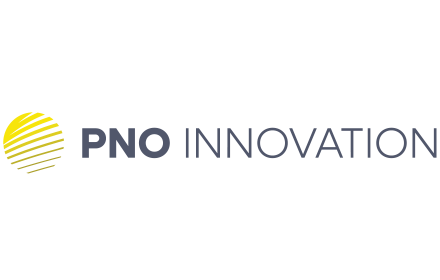
PNO INNOVATION
PNO INNOVATION Italy, as a wholly owned company and Italian branch of the PNO INNOVATION, is specialized in Innovation Management and funding, providing support services to private and public organizations in Innovation processes, Technology Transfer, IT solutions and funding for research, development and innovation. The PNO, established in 1984, is a European group, made up of a pool of more than 250 professionals across 7 Member States (direct presence) including scientists, engineers, consultants, a Brussels policy advisory service, as well as financial and legal experts. The growth of the company can be attributed to a unique combination of services, based on profound insight in research, innovation and funding strategies, up-to-date knowledge and 30 years of experience with more than 500 funding programmes in most EU countries. The company has the proven capability to link innovation suppliers and adopters from a unique Europe-wide client network in multiple sectors, using advanced methodologies and proprietary on-line networking. The PNO INNOVATION’s core business is to support industries, Public Administration and research organizations in the definition, implementation and realization of their innovation strategies. The PNO INNOVATION supports over 2,000 clients throughout Europe, annually developing over 200 European consortia projects and fostering their successful implementation in many technology domains through the project management, technology intelligence, innovation services, exploitation and dissemination services, and the setting up of international technology transfer networks and knowledge sharing communities. PNO INNOVATION participates as a partner and as coordinator in over 70 innovation projects funded by the European Union and each year attracts over 200 million Euro in public funding for ground-breaking innovation projects. For dissemination and communication activities, PNO INNOVATION Italy has its own community building, management and dissemination tools, the core one being Innovation Place© (www.innovationplace.eu) serving over 30,000 high-tech companies and organizations in Europe. Regarding project financial administration, annually, PNO INNOVATION supports organizations within over 3,000 national and European funding programmes and fiscal regulations. PNO INNOVATION advises organizations in setting up their financial project management, administration and reporting procedures to be compliant with requirements set by the funding authority; is fully responsible for the execution of the financial project management; implements the project administration and prepares and submits the interim and final reports for the funding authorities. PNO INNOVATION also co-managed the process of developing a Public Private Partnership and the SPIRE 2030 Innovation Roadmap (www.spire2030.eu) for the sustainable process industry, and the new Vision and Strategic research Agenda of WssTP on Water Innovation, as input to HORIZON 2020. PNO INNOVATION has drafted and successfully executed dissemination and exploitation plans of numerous European projects in various sectors.
Role in the project:
PNO INNOVATION is the work package leader Exploitation, Replication, Communication and Dissemination strategy
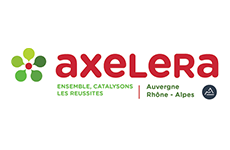
AXELERA - ASSOCIATION CHIMIE-ENVIRONNEMENT AUVERGNE-RHONE-ALPES
Axelera is the leading French cluster for the chemical and environmental sectors. It was created in 2005 in the France’s Auvergne-Rhône-Alpes region. Economically, this region is ranked second in France (7th in Europe) and is also known as the first chemical production region in France. Axelera is committed to developing sustainable, efficient, circular and clean solutions for industry. Axelera’s network of 370 members (at Dec. 31, 2020) gathers expertise in:
- Water, air, and soil depollution;
- Materials and chemicals manufacturing;
- Equipment and systems manufacturing and integration;
- Process engineering, energy and resource efficiency, and regulatory compliance;
- Recycling/reuse of various industrial by-products and end-of-life products;
- Renewable raw materials;
- Digitalisation of industry.
Role in the project:
Axelera creates a market for CCU by developing local CCU hubs, starting in the AURA region and will facilitate the replication of project results across Europe.
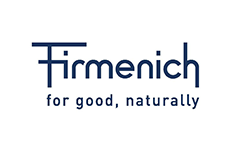
FIRMENICH SA
Firmenich SA is the world's largest privately owned company on the market of Flavours and Fragrances. The company was created 125 years ago, it employs about 10,000 people and has a turnover of close to 5 billion dollars per year.
Role in the project:
FIRMENICH will validate the quality of end products or marketable intermediates.
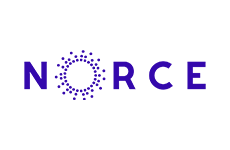
NORCE NORWEGIAN RESEARCH CENTRE AS
NORCE is Norway's second largest independent research institutes, with a turnover of around 100 M€, 750 employees, 1500 projects, and 500 scientific peer-reviewed publications per year. Research and innovation at NORCE cover areas within Energy, Health, Climate, Environment, Society and Technology. At the core of NORCE’s research is developing sustainable solutions for society at large, anchored to UN’s sustainable development goals (SDGs). Our solutions are generated to both meet key societal challenges and contribute to sustainable value creation locally, nationally and globally. More specifically, we aim for society to have a mix of energy sources that are sustainable, safe and produce energy in a cost-efficient manner; reduce social inequality, and improve health in every stage of life; understand climate change, consequences thereof, and how we best can adapt; sustainably use and manage the environment and natural resources, including contributions to the future bioeconomy; understand, explain and provide sustainable solutions to key social issues by providing a foundation for decision-making by politicians, authorities and businesses; and develop technology used in transport, aquaculture, energy, civil protection and medicine. Drawing on high calibre expertise in a wide range of fields NORCE is uniquely equipped to foster new knowledge and innovative solutions and maintains a research infrastructure to support cutting edge research within its fields. Also, NORCE’s research focus culminates in four overarching interdisciplinary topics; safe society, sustainable energy production, climate change, sustainable oceans and aquaculture, utilizing expertise across all six above mentioned topics. NORCE is a leading participant in several national centres of excellence, and has a strong focus on international research collaborations, including EU projects. The institute’s research is actively communicated via several platforms to reach different audiences, including stakeholders.
Role in the project:
NORCE will co-lead the work package ‘From feedstock to acetone: bioprocess development & optimization’ focussing on the upscaling of the two-step bioprocess from CO2 to acetone to a pre-pilot scale.
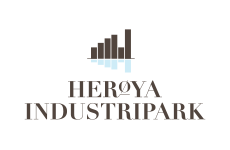
HERØYA INDUSTRIPARK AS
Herøya Industripark AS is one of the leading industrial parks in Norway. More than 80 different companies having 2500 employees are located in the park. Herøya Industripark AS owns land, buildings and vital infrastructure which are leased out to operators on long term lease contracts The 80 different companies located in the industrial park, represent an important resource pool and covers a large range of activities. The companies have their activities in process chemistry, engineering, Research and development and different support and maintenance services. . In recent years, we have developed a concept called Pilot Arena Herøya, where we are offering an industrial environment for the scaleup and development of industrial technologies and processes. We have established pilot scale studies of more than 40 different companies and processes during the last years. We have close collaborations with R&D institutions and Universities to support the scale-up projects. In addition, we have access to important industrial competences and resources through the close collaboration with engineering companies, giving us the ability to design, build and operate industrial pilot plants in an industrial environment. One of the strategic directions for Herøya Industripark AS is to develop an attractive arena for industrialization of promising research results and through our network of resources and competences to establish an attractive innovation environment from lab-scale activities, through pilot-scale studies to full scale industrial implementation. Herøya Industripark AS is involved in different EU/H2020 initiatives and is currently hosting other pilot scale projects.
Role in the project:
HIP will be hosting the PYROCO2 demonstrator unit and will facilitate and optimize the placement of the demonstrator and secure the access to vital infrastructure and utilities available in the industrial park.
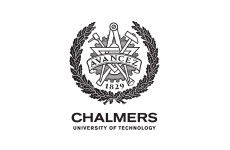
CHALMERS TEKNISKA HOEGSKOLA AB
Chalmers tekniska hoegskola (CTH) was founded in 1829 following a donation by William Chalmers, director of the Swedish East India Company, and was transformed into an independent foundation in 1994. Chalmers has developed leading research in the areas of life sciences, materials science, information technology, micro-and nanotechnology, environmental sciences and energy. The university offers PhD and Licentiate programmes as well as MScEng, MArch, BEng and nautical programmes. The division of Environmental Systems Analysis (ESA) which is located at the department of Technology Management and Economics participates in this project. The division conducts research to find more sustainable technology solutions and to find ways to transform technology systems to better meet the environmental and resource constraints faced by society. The division has a long engagement in life cycle assessment, risk assessment and various environmental flow methods. Approaches of flow methods from a social science perspective, innovation systems and transition studies complete the research strategy. The division’s areas of expertise are unified through a common systems-based approach. The division also offers courses closely related to its research. The division has around 40 staff and faculty members and broad expertise, including engineers and researchers in both the physical and political sciences.
Role in the project:
CTH will carry out environmental life cycle assessments of the technology in development and its possible variants, and product portfolios.
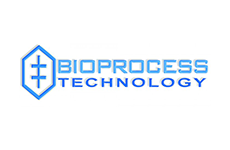
BIOPROCESS TECHNOLOGY SL
Bioprocess Technology is a company specialized in the field of biotechnology and related industries. With more of 20 years, our engineers and development department have the know-how necessary for the elaboration of engineering and reengineering of all the stages related to the biotechnological process, from the design to the manufacturing, installation and commissioning of process plants at an industrial level and R&D laboratories.
Role in the project:
Bioprocess Technology will provide all the effort throughout all work packages involved on the upscaling and process and reactor design.
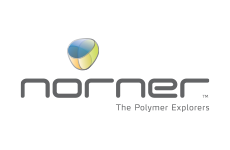
Norner Research AS
NORNER Research AS is a Norwegian non-profit private company with an ambition to explore smart products, safe polymers and new production technologies for polymers from sustainable feedstock as well as sustainable packaging solutions and safe food protection. NORNER Research provides industrial polymer services in research and development covering catalysis, polymerization processes and technologies, polymer science, polymer processing and application performance. A key activity is collaborative R&D with the industry to ensure that new solutions are developed to the benefit of these companies. Norner’s Polymer Exploration Centre is equipped with industrial bench scale reactors and and minipilot plants including required infrastructure for a range of homogeneously and heterogeneously catalyzed polymerisation processes. Norner has industrially relevant polymer conversion equipment for injection moulding machines and compression moulding equipment as well as a range of other conversion technologies. Norner has high strategic ambitions related to developing novel solutions for plastics in the circular economy. Norner contributes with its expertise in the whole plastics value chain to develop solutions for plastics in the circular economy, related to biobased polymers, material recycling and chemical recycling. Notably, Norner strives to develop solutions that will radically improve the quality and consistency of polymers made from novel feedstock like CO2 and demonstrate their use e. g. in packaging and notably food packaging applications.
Role in the project:
Norner is engaged in the technical work package aimed at the production of materials from CO2 derived chemical building blocks.
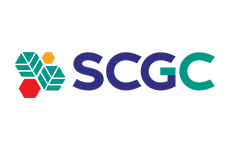
SCG CHEMICALS COMPANY LIMITED
SCG, a leading business conglomerate in the ASEAN region, has committed itself to conducting business in line with good corporate governance and sustainable development principles throughout 100 years. The Group's longstanding tradition of learning, adjustment and development in all areas has enabled SCG to survive the wave of crises and challenges and earn widespread recognition as a role model for other businesses, both locally and internationally. SCG was established in 1913 following a royal decree of His Majesty King Rama VI to produce cement, the main building material for infrastructure projects that greatly contributed to the progress of the country during that period. Since its founding, SCG has grown continually and diversified into three core businesses, namely SCG Cement Building Materials, SCG Chemicals and SCG Packaging. SCG, Chemicals Business has emphasized on developing and increasing sales of high value-added products through new innovations to satisfy diversified customers’ needs and strengthen our competitiveness along with Circular Economy concept in order to take on all changes, address customers’ and stakeholders’ needs and become a regional leader. Chemicals Business has applied digital technology to uplift operation efficiency to meet the challenges of the future. In addition, Chemicals Business has committed itself to conducting business in line with sustainable development principles through eco-friendly products and production processes. SCG is a co-founder of Alliance to End Plastic Waste, a world-class non-profit organization created by world leading companies throughout plastic value chain from manufacturers, retailers, consumers, and plastic waste management companies to solve plastic waste issues, especially in the ocean. In Thailand, SCG has participated in a cooperation program among public and private sector for sustainable plastics and waste management (PPP Plastic).
Role in the project:
SCG will contribute direct expertise in WP’s that are related to the evaluation of marketable commodity materials.

JOHNSON MATTHEY PLC
Johnson Matthey is a speciality chemicals company focused on its core skills in catalysis, precious metals, fine chemicals and process technology. The company employs around 14,000 people worldwide in over 30 countries; around 10% of those work in an R&D function. Johnson Matthey's principal activities are the manufacture of autocatalysts, heavy duty diesel catalysts and pollution control systems, catalysts and components for fuel cells, catalysts and technologies for chemical processes, fine chemicals, chemical catalysts and active pharmaceutical ingredients and the marketing, refining, and fabrication of precious metals. More than half of Johnson Matthey’s products have a direct environmental benefit, a figure that is set to increase as a key part of the company’s growth strategy is to focus on emerging environmental opportunities. JM provides a range of catalysts and process technologies for process catalysis.
Role in the project:
JM is involved in catalyst development, scale-up, and supply for chemical intermediate conversion and fuels production.
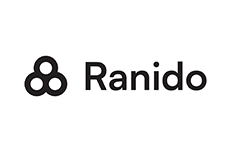
RANIDO, S.R.O.
Ranido, s.r.o. is a limited company located in Prague, in the Czech Republic. The company has a status of a micro SME with a special focus on catalyst R&D and custom manufacturing services. Main customers are manufacturers of bulk and specialty chemicals in EMEA region. Ranido serves large international chemical companies as well as medium and small size chemical producers of fine and specialty chemicals. Many years of experience in catalyst research and a thorough know-how of catalyst production are the prerequisite of the company business. The catalyst R&D centre in Kralupy nad Vltavou (near Prague) has further strengthen Ranido´s technology portfolio and service offerings for catalyst applications and provides a complete range of solutions for various customer projects.
Role in the project:
Ranido will be involved in the catalyst and process development from acetone to different target chemicals and fuels
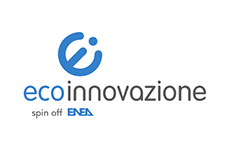
ECOINNOVAZIONE SRL
Ecoinnovazione s.r.l (http://www.ecoinnovazione.it) is a research and consultancy firm, set up as an ENEA spin-off (the Italian National Agency for New Technologies, Energy and Sustainable Economic Development). ECOIN has a robust knowledge and experience in life cycle-based sustainability (environmental LCA, social LCA and economic aspects) assessment of innovative technologies, applies Responsible Research and Innovation principles and stakeholder engagement in the research and development process to achieve acceptability and consensus on innovative technologies, products and methods. In particular, ECOIN is pioneering the social assessment with life cycle approach. It participated to the revised (2020) Social LCA Guidelines under the Life Cycle Initiative; in 2018 co-organised and co-chaired the international conference on Social LCA (Pescara, 10-12 September 2018) (http://www.slca2018.eu). ECOIN participates in multi-stakeholder boards and working groups with, besides others, the European Commission (e.g.: product and organisation environmental footprint; sustainable finance), the United Nation Environment within the Life Cycle Initiative, as member of the Steering Committee as representative of the business constituency; the Social LCA Alliance (https://www.social-lca.org). Ecoinnovazione is accredited as industrial research laboratory within the High Technology Network of the Emilia Romagna region and is “Participant” of the United Nations Global Compact.
Role in the project:
ECOINNOVAZIONE will lead the evaluation of social impacts and benefits of the PYROCO2 system and will be involved in activities on stakeholders’ engagement for addressing acceptability, and anticipating potential social issues, mapping of needs and wishes of stakeholders about potential social impacts and benefits of the PYROCO2 system.
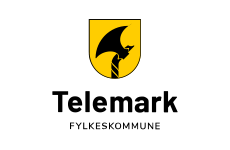
Telemark Fylkeskommune (TFK)
Vestfold and Telemark County is a region with more than 425.000 inhabitant living in 23 municipalities. The County Council is the region’s largest employer with more than 4000 employees. As a regional development authority, we make plans for and supports regional development, supporting and developing the regional innovation system through funding business attraction, investment attraction, talent attraction through regional innovation strategies. With its total area of 17,466 km², Vestfold and Telemark county has a population density of approximately 24.3 inhabitants/km². Parts of the county are characterized by large geographical distances, the population density is greatest along the coast of the county, and the interior of the county is characterized by more scattered settlement. Vestfold and Telemark are the sixth largest county measured by population and the seventh largest county by area. The county borders Viken in the north and east, Vestland and Rogaland in the west and Agder in the south. There is a great variation in the business structure in the county, where Tønsberg, Horten (Vestfold), Skien and Porsgrunn (Telemark) are the economic areas in the county with the highest R&D expenditure per employee. The R&D expenditure for these two areas is above the average in Norway. At the end of 2019, there were a total of 184.699 employees in Vestfold and Telemark, of which 122,552 were employed in the private sector. The county employs a total of 6,8% of all employees in Norway and 6,6% of all employees in the private sector. R&D expenditure in Vestfold and Telemark county accounted for 4.7% of the national level. Vestfold and Telemark county differ from the other counties in Norway as the business community has a relatively larger share of R&D expenditure. The research institute sector in the county is small and is mainly located in Porsgrunn and the surroundings (Telemark) and consists of SINTEF (formerly Tel-Tek), Norner and Telemark Research. The University of South-Eastern Norway (USN) is the major higher academic player and has several campuses in the county and accounted for 0.5% of the national R&D expenditure in the university sector. Vestfold og Telemark fylkeskommune County Council has participated in EU financed projects both as partner and supporting municipalities and High Schools since 1997. We have participated in a wide range of projects in different EU programmes like Horizon 2020, Interreg, Erasmus +, EEA Grants, Creative Europe and Espon.
Role in the project:
Vestfold and Telemark County Council together with Porsgrunn Municipality will take part in all the tasks of the WP ‘Exploitation, Replication, Communication and Dissemination’.


